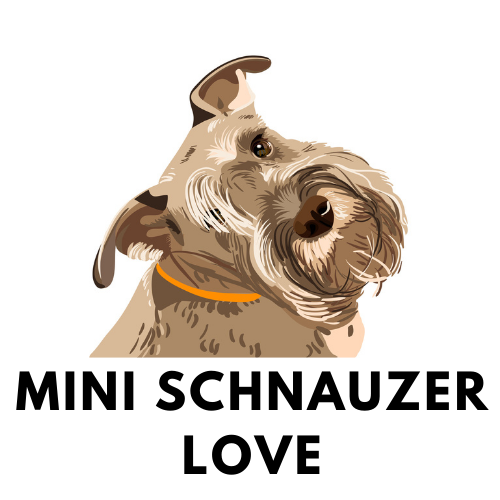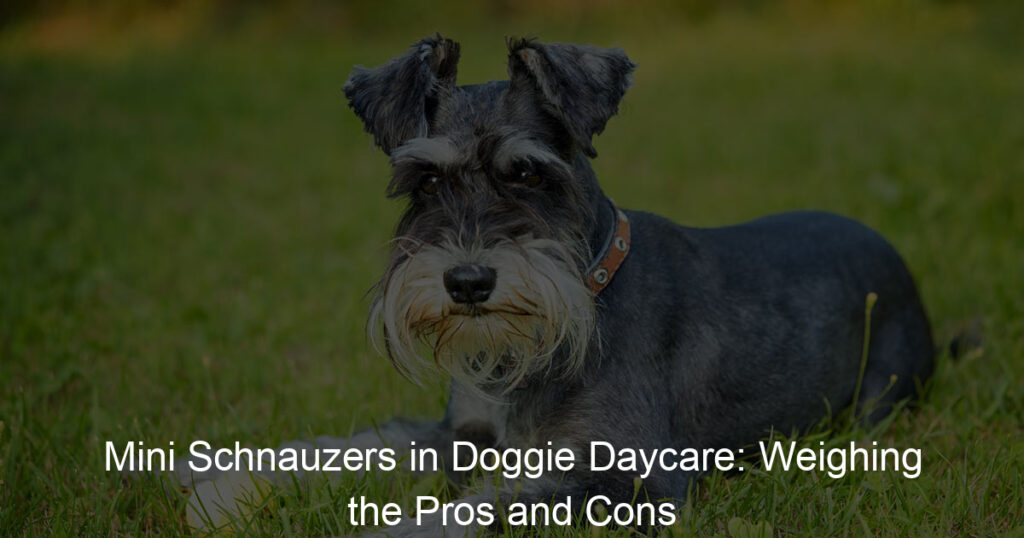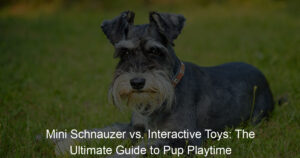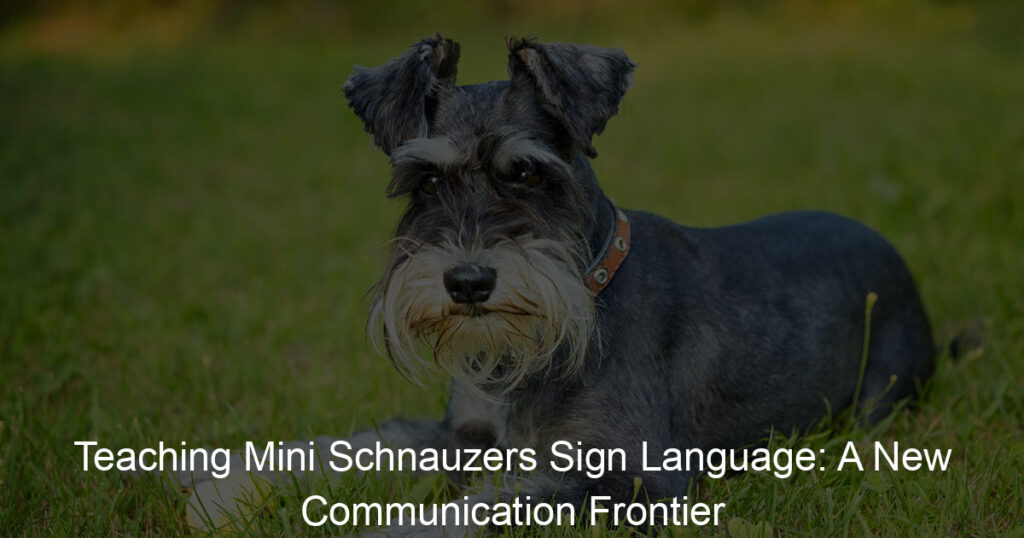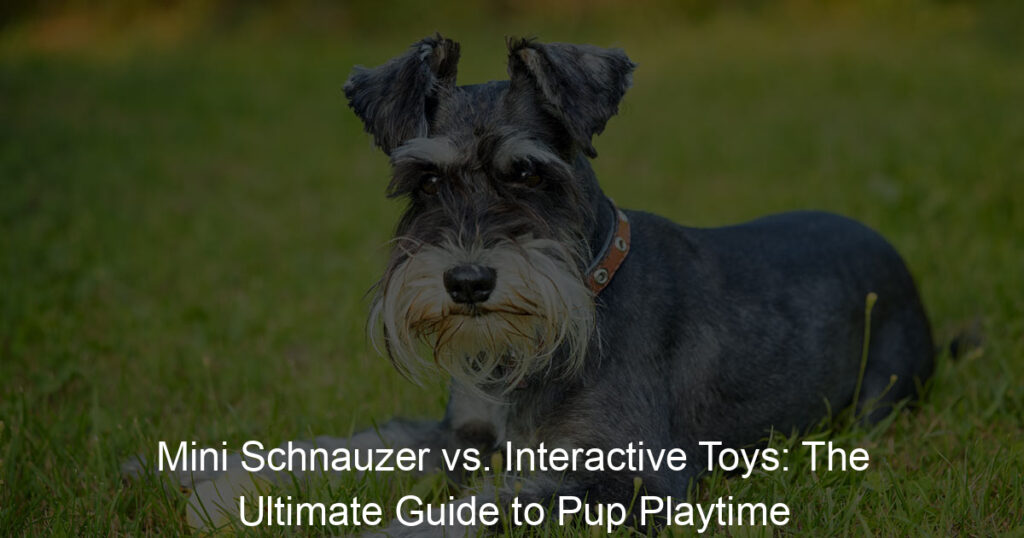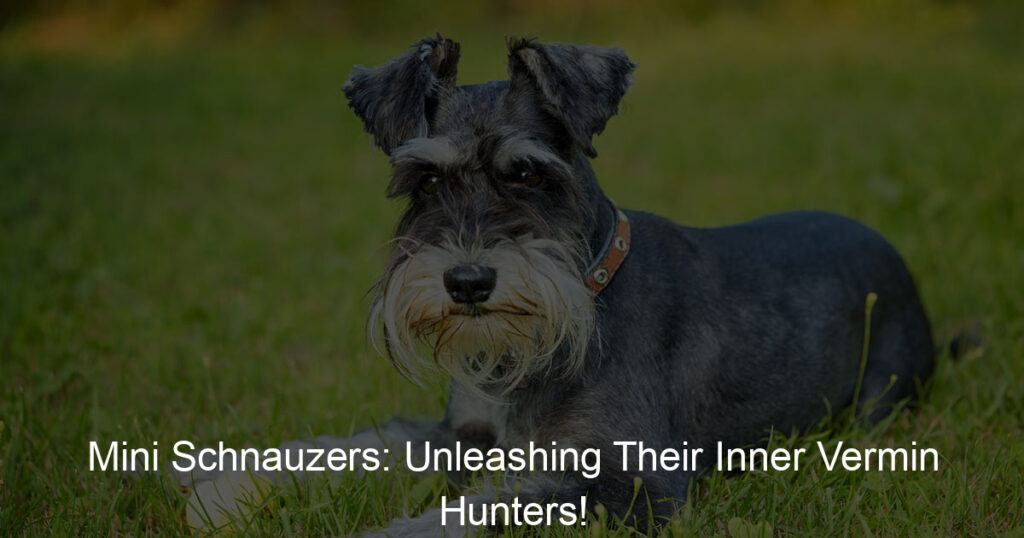
Introduction to Mini Schnauzers and Doggie Daycare
Welcome to our comprehensive guide on Mini Schnauzers and Doggie Daycare. This article aims to provide you with a clear understanding of the breed and the concept of doggie daycare. Let’s dive in!
-
Overview of Mini Schnauzers
The Miniature Schnauzer, often referred to as Mini Schnauzer, is a small, robust, and active breed. Originating from Germany, these dogs are known for their distinctive appearance, featuring a bushy beard, eyebrows, and a wiry coat. They typically weigh between 12 to 20 pounds and stand about 12 to 14 inches tall.
Mini Schnauzers are intelligent, energetic, and friendly dogs. They are known for their alertness and are often used as watchdogs. Despite their small size, they have a big personality and make excellent companions. They are also known for their loyalty and the strong bond they form with their family.
-
Understanding Doggie Daycare
Doggie Daycare is a service that allows pet owners to drop off their dogs for a day of care, socialization, and fun while they are at work or busy. These facilities provide a safe and stimulating environment where dogs can play, interact with other dogs, and receive attention and care from trained staff.
Many doggie daycares offer a range of services including play sessions, training, grooming, and even overnight stays. They are equipped with indoor and outdoor play areas, toys, and comfortable resting spaces. Doggie daycare can be a great option for busy pet owners who want to ensure their dogs are well cared for and happy.
Now that we have a basic understanding of Mini Schnauzers and Doggie Daycare, let’s delve deeper into the benefits and potential drawbacks of doggie daycare for Mini Schnauzers.
Benefits of Doggie Daycare for Mini Schnauzers
If you’re a proud Mini Schnauzer parent, you might be wondering if doggie daycare is a good fit for your furry friend. Let’s explore some of the key benefits that this service can offer to your Mini Schnauzer.
- Socialization Opportunities
- Structured Routine
- Physical Exercise
- Professional Care
Mini Schnauzers are known for their energetic and friendly nature. They love to play and interact with other dogs. Doggie daycare provides a safe and controlled environment for your Mini Schnauzer to meet and play with other dogs. This can help improve their social skills and reduce any potential anxiety or fear they might have around other dogs.
Just like children, dogs thrive on routine. A structured routine can help your Mini Schnauzer feel more secure and confident. At doggie daycare, your dog will have a regular schedule of playtime, mealtime, and naptime. This can help them adjust to a routine and make them more comfortable when they are at home.
Mini Schnauzers are active dogs that require regular exercise to stay healthy and happy. Doggie daycare provides plenty of opportunities for your dog to run, jump, and play. This can help keep your Mini Schnauzer in good physical shape and can also help reduce any destructive behaviors caused by excess energy.
At doggie daycare, your Mini Schnauzer will be under the care of trained professionals who understand the specific needs of this breed. They can provide your dog with the right amount of exercise and social interaction, and they can also spot any potential health issues early. This can give you peace of mind knowing that your dog is in good hands while you’re at work or away.
In conclusion, doggie daycare can provide numerous benefits for your Mini Schnauzer, including socialization opportunities, a structured routine, physical exercise, and professional care. However, it’s important to choose a daycare that’s a good fit for your dog’s personality and needs. Always visit the daycare and meet the staff before making a decision.
Cons of Doggie Daycare for Mini Schnauzers
While doggie daycare can be a wonderful resource for many Mini Schnauzers, it’s important to consider the potential downsides as well. Let’s delve into some of the cons that may arise when sending your Mini Schnauzer to a doggie daycare.
- Potential for Stress
- Risk of Illness
- Cost Considerations
Mini Schnauzers, like all dogs, have their own unique personalities and temperaments. Some may thrive in a social environment, while others may find it overwhelming. The noise, activity, and presence of other dogs can potentially cause stress for your Mini Schnauzer. It’s important to monitor your dog’s behavior and mood to ensure they are comfortable and happy in the daycare setting.
Anytime your Mini Schnauzer is in close proximity with other dogs, there’s a risk of illness. Despite the best efforts of daycare staff to maintain cleanliness, diseases can spread quickly in a group setting. Common illnesses include kennel cough and canine influenza. To mitigate this risk, ensure your Mini Schnauzer is up-to-date on all vaccinations and regular health check-ups.
Doggie daycare can be a significant expense, especially if used regularly. The cost can vary widely depending on the facility, location, and services provided. It’s important to factor this into your budget and consider if the benefits outweigh the costs for your Mini Schnauzer and your family. Remember, there are other options available such as dog walkers or pet sitters which may be more cost-effective depending on your circumstances.
In conclusion, while doggie daycare can provide numerous benefits for Mini Schnauzers, it’s crucial to consider the potential stress, risk of illness, and cost implications. Every dog is unique, and what works for one may not work for another. It’s always best to make an informed decision based on your Mini Schnauzer’s needs and your personal circumstances.
Case Study: Mini Schnauzers in Daycare
Let’s delve into some real-life examples of Mini Schnauzers thriving in daycare environments. These success stories illustrate the potential benefits of daycare for this particular breed.
Success Stories
-
Case Study 1: Bella’s Transformation
Bella, a shy Mini Schnauzer, was initially hesitant about attending daycare. Her owners were concerned about her lack of socialization with other dogs. After a few weeks in daycare, Bella’s behavior significantly improved. She became more confident and interactive, both with dogs and humans. Her owners reported that Bella’s anxiety levels had decreased, and she seemed happier overall.
-
Case Study 2: Max’s Improved Health
Max, a Mini Schnauzer with a tendency to gain weight, was enrolled in daycare to increase his physical activity. The structured play and exercise at daycare helped Max shed the extra pounds, improving his overall health. His owners also noticed an increase in his energy levels and a decrease in his previously frequent digestive issues. Max’s story shows how daycare can contribute to a Mini Schnauzer’s physical health.
These stories highlight the potential benefits of daycare for Mini Schnauzers. However, it’s important to remember that every dog is unique. What works for Bella and Max may not work for all Mini Schnauzers. Always consider your dog’s individual needs when choosing a daycare.
Less Successful Experiences
While many Mini Schnauzers have a great time at doggie daycare, there are some instances where the experience was not as positive. Let’s take a look at two such cases.
- Case Study 3:
- Case Study 4:
Meet Max, a lively Mini Schnauzer who loves to play. Max’s owners decided to enroll him in a local doggie daycare. Initially, Max seemed to enjoy his time there. However, after a few weeks, his owners noticed a change in his behavior. Max became more aggressive and less interested in playing. His appetite also decreased.
Upon consulting with a veterinarian, they found out that Max was stressed. The constant noise and activity at the daycare were too much for him. Max’s owners decided to withdraw him from the daycare and noticed a positive change in his behavior within a few weeks.
Next, we have Bella, a shy Mini Schnauzer. Bella’s owners thought that sending her to a doggie daycare would help her socialize. Unfortunately, this was not the case. Bella was overwhelmed by the number of dogs and the constant activity. She would often hide and avoid interaction with other dogs.
Bella’s owners noticed that she was becoming more anxious and decided to pull her out of the daycare. They opted for a pet sitter who would give Bella the one-on-one attention she needed. Bella’s anxiety levels decreased, and she became more comfortable around other dogs in smaller settings.
These case studies show that while doggie daycare can be beneficial for some Mini Schnauzers, it’s not the best option for all. It’s crucial to consider your dog’s personality and needs before deciding on daycare.
Alternatives to Doggie Daycare for Mini Schnauzers
While doggie daycare can be a great option for many Mini Schnauzers, it’s not the only choice. There are several alternatives that can provide your furry friend with the care, socialization, and stimulation they need. Let’s explore some of these alternatives.
- Home Care
- Pet Sitters
- Mini Schnauzer Playgroups
One of the most common alternatives to doggie daycare is home care. This involves someone, either you or a trusted individual, staying at home with your Mini Schnauzer. This can be a great option if your dog prefers a quieter environment or needs special attention. It also allows your dog to stay in a familiar environment, which can reduce stress and anxiety.
Another alternative is hiring a pet sitter. A pet sitter can come to your home and take care of your Mini Schnauzer while you’re away. This can include feeding, walking, playing, and even training. Pet sitters can provide one-on-one attention that your dog might not get at a daycare. Plus, they can adapt to your dog’s schedule and needs.
A third alternative is a Mini Schnauzer playgroup. These are groups of Mini Schnauzer owners who meet regularly so their dogs can play and socialize. This can be a great way for your dog to make friends and burn off energy. Plus, it’s a chance for you to meet other Mini Schnauzer owners and share tips and experiences.
Remember, every Mini Schnauzer is unique and what works for one might not work for another. It’s important to consider your dog’s personality, needs, and preferences when choosing a care option. By exploring these alternatives, you can find the best fit for your Mini Schnauzer and ensure they’re happy and well-cared for.
Key Takeaways: Pros and Cons of Doggie Daycare for Mini Schnauzers
As we wrap up our discussion on Mini Schnauzers and doggie daycare, it’s important to summarize the key points. This will help you make an informed decision about whether doggie daycare is the right choice for your Mini Schnauzer.
- Understanding Your Mini Schnauzer’s Needs
- Weighing the Pros and Cons
- Making the Best Decision for Your Mini Schnauzer
Mini Schnauzers are energetic, intelligent, and sociable dogs. They require regular mental and physical stimulation to keep them happy and healthy. While doggie daycare can provide this, it’s important to remember that not all daycares are the same. Some may not provide the level of care or stimulation your Mini Schnauzer needs. Always research and visit potential daycares before making a decision.
Doggie daycare can offer numerous benefits for Mini Schnauzers, such as socialization, exercise, and mental stimulation. However, there are also potential downsides to consider. These can include the risk of illness, stress from a noisy environment, and the cost. Weigh these pros and cons carefully to determine if doggie daycare is the best option for your Mini Schnauzer.
| Pros | Cons |
|---|---|
| Socialization | Risk of Illness |
| Exercise | Stressful Environment |
| Mental Stimulation | Cost |
Ultimately, the decision to enroll your Mini Schnauzer in doggie daycare should be based on their individual needs, temperament, and your personal circumstances. If you’re unsure, consult with a vet or a professional dog trainer. They can provide valuable advice based on their knowledge and experience with Mini Schnauzers.
In conclusion, doggie daycare can be a beneficial option for many Mini Schnauzers. However, it’s not the only option. There are many ways to provide your Mini Schnauzer with the care, stimulation, and socialization they need. Always prioritize your Mini Schnauzer’s well-being and happiness when making these decisions.
